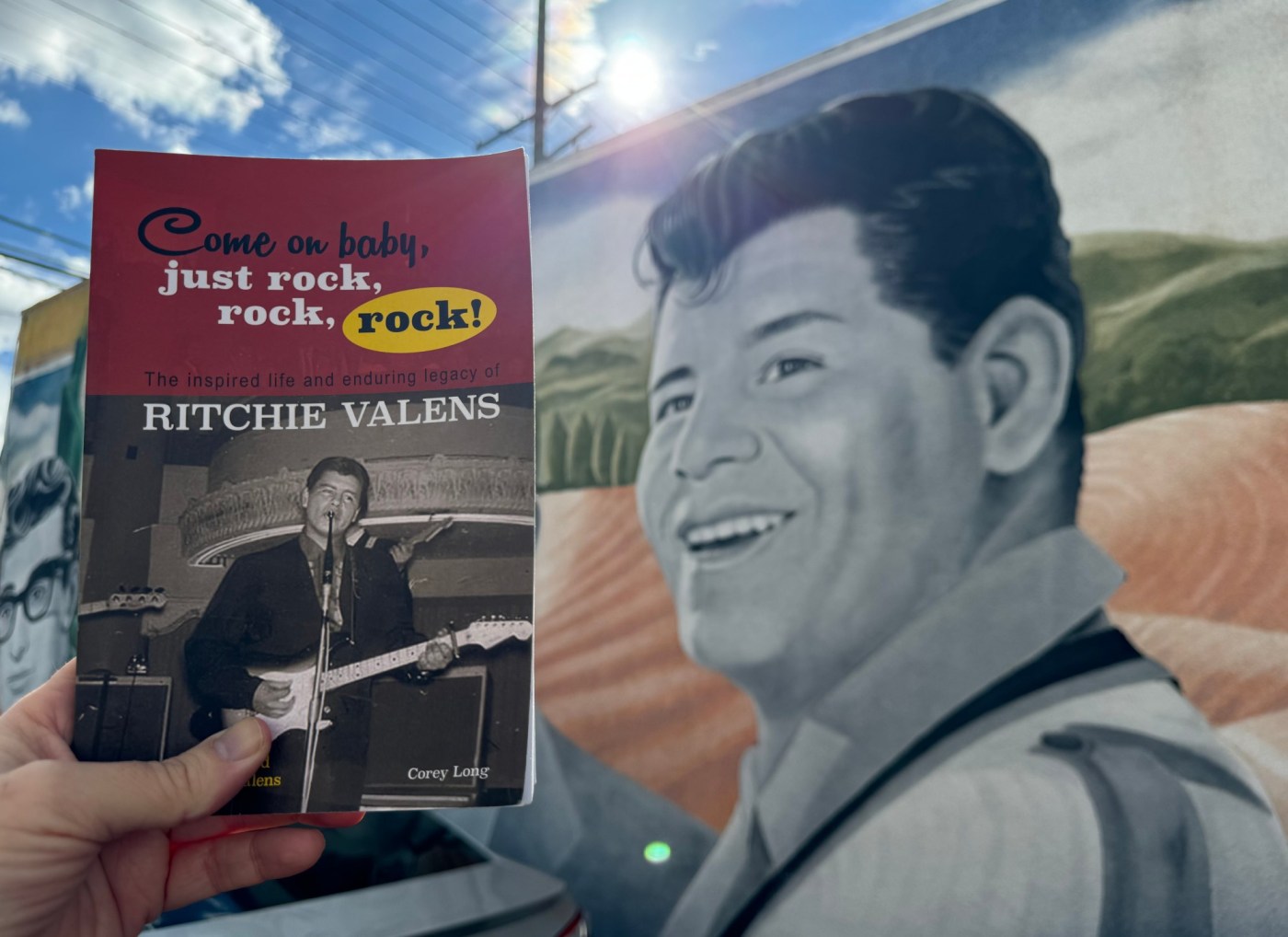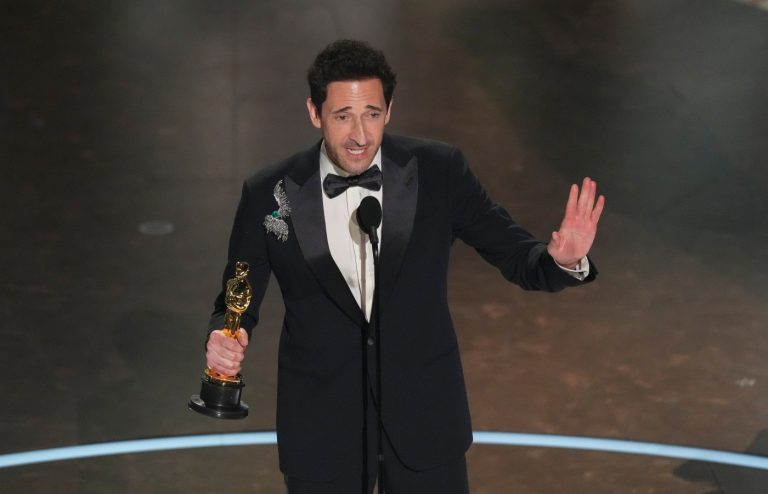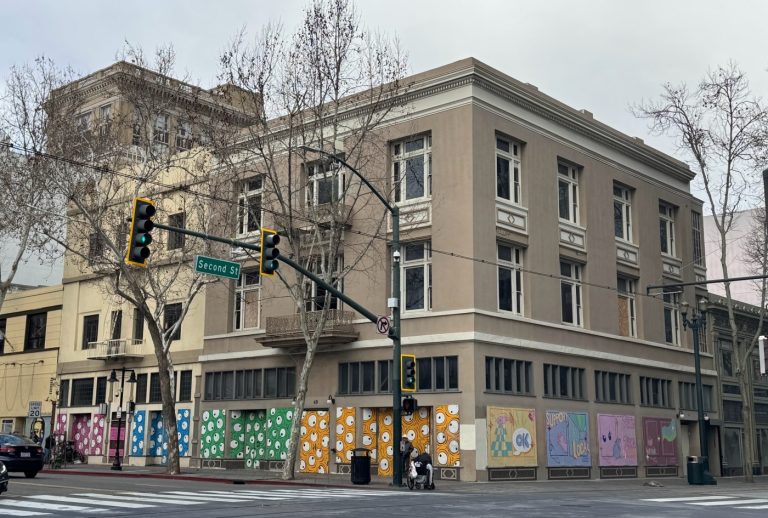Ritchie Valens was rescued from obscurity by a 1987 movie, “La Bamba,” that finally put the Southern California teen’s story ahead of Buddy Holly and the Big Bopper, the two older singers who died in the same Feb. 3, 1959 plane crash.
The movie became a cultural touchstone. Books about Valens, though, have been scarce.
The only biography was 1987’s “Ritchie Valens, the First Latino Rocker” by Beverly Mendheim, who struggled to turn her research into a narrative.
Since then, the miserable and frigid Winter Dance Party tour that included the doomed trio has been the subject of a book. Others have been penned on Chicano rock in Southern California and on Valens’ guitars (really). But that’s it.
Until now, with the publication of “Come On Baby, Let’s Rock, Rock, Rock!”, subtitled “The inspired life and enduring legacy of Ritchie Valens.”
Corey Long, Valens’ biographer, is a 46-year-old White man from Toronto who has visited Southern California only once. But he tells Valens’ story skillfully, without getting lost in the details.
While he had to publish “Come On Baby” himself, and acknowledges he could have used an editor, it’s the best Valens biography we’re likely to get.
But don’t take my word for it.
“He got it right,” Connie Valens, one of Ritchie’s three surviving siblings, tells me in a phone interview. “It tells the real story, the true story. He didn’t hold anything back.”
She adds of Long: “We consider him family now. He knows more about us than we do.”
I’ve become a latter-day admirer of Valens. Back in 1980 when I got “The Complete Buddy Holly” six-LP set, at age 16, the prevailing narrative was that Holly was the big loss, with Valens and J.P. “Big Bopper” Richardson serving as collateral damage.
I learned more about Valens in recent years when researching his two performances in Pomona. My column on Valens and his appearances at the L.A. County Fair (September 1958) and the Rainbow Gardens dance hall (Jan. 16, 1959) ran on the 60th anniversary of his death.
I was out sick with pneumonia, but an anniversary is an anniversary, so I pulled myself, and my research, together. In one passing line, I wrote: “It’s surprising no biography seems to have been attempted since” 1987.
Up in Canada, Long saw the link to that column on his Yahoo home page, read it and emailed me. A college administrator and musician, he had become a Valens fan after watching “La Bamba” on VHS at age 10.
Was it too late for a new biography, Long asked me? I said I thought Valens’ role as an early Chicano rocker is better understood today than in 1987.
Corey Long became a fan of Ritchie Valens after watching the 1987 biopic “La Bamba” on VHS at age 10. A musician and writer in Toronto, Long felt called to pen the first Valens biography in nearly four decades and publish it himself. (Photo by David Allen, Inland Valley Daily Bulletin/SCNG)
We corresponded off and on for the next five years. We finally spoke via Zoom in October after the publication of his book.
“I’d been kicking around the idea of a Ritchie biography,” Long tells me. “I felt like there was more that could be told about his life. Your article said there hadn’t been a biography in a long time and there ought to be one. That was the sign I needed.”
What can I say? I am an inspirational figure.
In 2020, while attending an annual commemoration of the Winter Dance Party tour’s final stop in Clear Lake, Iowa, Long went to the Ritchie Valens Family Luncheon to make contact with family members, who accepted his proposal for a biography.
With his book, Long had a couple of goals. One was to piece Valens’ story together in a coherent, compelling way. A second was to make Valens seem like a real person to readers.
“I didn’t want to focus on his death. It gets too much attention,” Long says. “I wanted to focus on his life.”
It wasn’t easy. Print interviews in that era were brief. Valens was in high school, his life and personality still in flux. And his public life was short.
He was discovered in May 1958 and spent the next nine months recording, touring and writing songs before his death in February 1959.
“The fact that he did all that is really astonishing,” Long says. “When you put it in a calendar, it’s about nine months.”
Valens had three hits: “La Bamba,” “Donna” and “Come On, Let’s Go.”
Turning a Mexican folk song into a joyful rocker that is instantly recognizable, even decades later, is unquestionably Valens’ greatest achievement.
“‘La Bamba,’ it’s in the Library of Congress, for crying out loud,” Long says, referring to the song’s 2018 inclusion in the National Recording Registry.
The aftermath of Valens’ death is heartbreaking. “Trauma” was not a word that was used in that era. Society expected people to move on.
“As a person, he was a bright light of that family,” Long says of Valens. Without him, the family, which had held together only tenuously, fell apart.
Connie Valens was 8 when her brother died. She remembers his warmth and big presence, how she’d be sad when he left for a tour, how he’d step in and stop their brother Bob from tormenting her.
“He wasn’t just a brother, he was a father figure, for me at least,” Connie, 72, says by phone from Iowa, her home since 2011. “My mom had a nervous breakdown after Ritchie’s death.”
Connie and sister Irma, 7, were sent to stay with family friends who abused them, Connie says, making their young lives even more painful.
Connie was Long’s main contact, answering his questions and making introductions. She edited the manuscript, reading a little bit every night on her iPad. Sometimes, she says, “I would be sobbing so hard I would have to stop.”
Related Articles
Out of the ashes: Popular Oakland bookstore reopens after devastating fire
Bread-baking tips for beginners, from this former Opera San Jose singer turned award-winning cookbook author
How R.E.M. transformed from scrappy college band to Hall of Fame rock group
70 years ago, California executed a woman. Marcia Clark’s new book calls it unjust.
Review: Sharp cast propels TheatreWorks’ ‘Christmas at Pemberley’
She made only a couple of minor changes. “If that’s the life, that’s the life,” she says.
Long shopped the manuscript around but for expediency put it out himself in May via Amazon’s self-publishing platform. This means his paperback is only sold online, not in stores. C’est la vie.
The family’s official Ritchie Valens website and social media accounts have promoted “Come On Baby.” From Jan. 30-Feb. 1, 2025, Long plans to return to Clear Lake for the Winter Dance Party anniversary events for the first time since 2020.
“This time with the book, which is great,” Long says. “It was one of the joys of my life to go back to the last place Ritchie played.”
David Allen writes Wednesday, Friday and Sunday, soy capitan. Email dallen@scng.com, phone 909-483-9339, like davidallencolumnist on Facebook and follow @davidallen909 on X.












